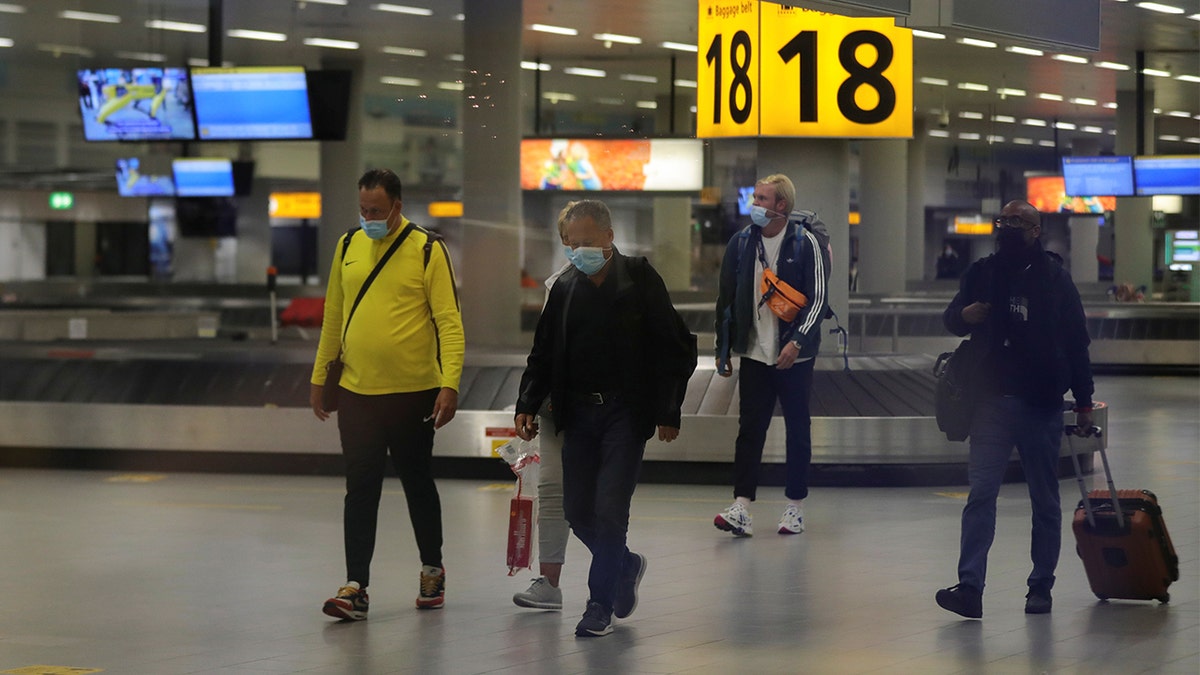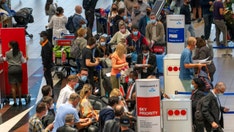Fox News Flash top headlines for November 27
Fox News Flash top headlines are here. Check out what's clicking on Foxnews.com.
Dutch authorities are checking for the omicron variant after 61 passengers on two flights from South Africa tested positive for COVID-19 on Friday.
The passengers who tested positive have been isolated and further investigations are being carried out.
The planes arrived in the Netherlands from Johannesburg and Cape Town shortly after the Dutch government – like many other nations – imposed a travel ban from southern African nations.
The 539 travelers who tested negative for coronavirus were allowed to return home or continue traveling to other countries.
People who live in the Netherlands and are allowed to return home are required to self-isolate for at least five days.

People walk inside Schiphol Airport after Dutch health authorities said that 61 people who arrived in Amsterdam on flights from South Africa tested positive for COVID-19, in Amsterdam, Netherlands, November 27, 2021. (REUTERS/Eva Plevier)
All of this comes after the World Health Organization (WHO) classified omicron as a "variant of concern" and many other countries implemented travel restrictions against South Africa and countries in the region.
Cases of the variant – which is worrying scientists due to its high number of mutations and some early evidence that it carries a higher degree of infection than other variants – have also been reported in Belgium, Israel and Hong Kong. Germany also has a probable case.
On Saturday, Britain confirmed two linked cases of the omicron variant.
COVID-19 OMICRON VARIANT: HERE'S WHAT WE KNOW
The U.S. joined a host of other nations Friday in imposing restrictions on South Africa and several other African countries, despite WHO guidance and pleas from the Africa Centers or Disease Control and Prevention, which said that such travel bans have "not yielded a meaningful outcome."

People walk outside XL Schiphol test pavilion after Dutch health authorities said that 61 people who arrived in Amsterdam on flights from South Africa tested positive for COVID-19, in Amsterdam, Netherlands, November 27, 2021. (REUTERS/Eva Plevier)
The changes are set to take effect on Monday, with exceptions for U.S. citizens, permanent residents and a few other categories.
"It seems to spread rapidly," President Biden said Friday, telling reporters that he's decided "that we’re going to be cautious."
The U.S. Centers for Disease Control and Prevention (CDC) said Friday night that no cases of the omicron variant have been identified in the U.S. to date and assured that the agency would "monitor its path."
Many questions have yet to be answered about the variant, including whether omicron can evade immune response, and U.S. and South African scientists were meeting Friday to discuss their findings.
The omicron variant alarmed health professionals due to its swift spread among young people in South Africa, although there was no immediate indication whether the variant causes more severe disease.
A number of pharmaceutical firms, including AstraZeneca, Moderna, Novavax and Pfizer, said they have plans in place to adapt their vaccines in light of the emergence of omicron.
CLICK HERE TO GET THE FOX NEWS APP
Fewer than 6% of people in Africa have been fully immunized against COVID-19, and millions of health workers and vulnerable populations have yet to receive a single dose.
The COVID-19 pandemic has claimed more than 5 million lives around the world.
The Associated Press contributed to this report.












































